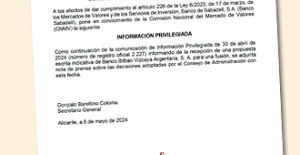Winter threatens to get dark on the island. Households should expect blackouts of up to three hours in the late afternoon on particularly cold days in winter, warned John Pettigrew, chief executive of utility grid operator National Grid.
In principle, the supply in the country is secured, Pettigrew explained at an energy congress on Monday. But given the war in Ukraine, it is important to point out potential risks. In a worst-case scenario, parts of the country could see power and gas cuts, "probably between 4 p.m. and 7 p.m. weekday evenings in January and February when it's really, really cold."
Unlike many countries on the continent, Great Britain does not purchase gas from Russia. For the gas-fired power plants, which ensure the basic supply in the country, it mainly uses gas from its own sources in the North Sea and from Norway. Added to this is LPG, which is landed at Europe's largest terminals in South Wales and Kent.
But the situation could become critical if it gets very cold, along with a lull that shuts down wind power, Pettigrew said. So far, in such situations, the UK has obtained electricity from neighboring countries such as Belgium, France and the Netherlands. However, given the energy crisis across Europe, this source could dry up next winter.
A spokeswoman for the energy supplier Octopus confirmed that consumption in private households is highest during the hours in the late afternoon. At the traditional end of the school and working day, people come home, turn on the lights and heating, put on the kettle, cook and use electronic devices at home. The network is then very quickly overloaded.
In order to get a better grip on such peaks in demand, National Grid will be the first network operator worldwide to offer private households the opportunity to participate in utilization planning starting next month. Financial incentives await those who change their usage habits and reduce consumption during peak times.
Octopus and Ovo Energy promise customers who use the new tariffs savings of around £100 (€116) in the winter months. The two providers are the first to pass on the National Grid offer to interested consumers.
Customers who opt for the model receive an indication of the situation on days with high demand, for example by text message. If they then reduce their consumption compared to their previous, longer-term usage habits, they receive a credit for this.
The focus of the model is not on saving electricity or gas, but on better utilization over the course of the day, for example in which household appliances such as the dishwasher or tumble dryer run overnight instead of in the evening at peak times when demand is much lower. On average, consumers could be credited with the model around four pounds on days when they adjust their consumption, Octopus expects.
“We have to be clear: this is a moment of historic importance. We are ushering in a new energy era, where homes will move from being passive consumers to being the driving force behind a smarter, greener and cheaper grid,” said Greg Jackson, Managing Director of Octopus Energy, at the launch of the new tariff. Ovo boss Raman Bhatia pointed out that the offer offers consumers more insight into their private energy consumption and thus shows potential savings.
At the beginning of the year, together with National Grid, Octopus tested a similar pricing model for a more even load. On average, the 200,000 participants saved 14 percent on their energy bills within the two-month period. The company also offers tariffs where electricity costs less overnight, or where the price is compared with wholesale prices every half hour.
The prerequisite for using these flexible tariffs are intelligent measuring systems or smart meters that measure the consumption of electricity and gas and report it directly to the energy supply company. The method is hardly used in Germany, but in Great Britain more than half of all households, a good 27 million, have these devices.
In the coalition dispute over the continued operation of German nuclear power plants, Chancellor Olaf Scholz has announced that a decision will be made soon. For Green Party leader Ricarda Lang, new fuel rods are a "red line". Finance Minister Christian Lindner has now commented on the dispute over nuclear power at WELT.
Source: WELT/Michael Wüllenweber
They are likely to gain further importance in the coming months. On Monday, in a spectacular about-face, the government not only overturned the planned tax cuts, but also cut the energy package significantly. The cap on electricity and gas prices of around £2,500 a year for private households was supposed to last for two years.
Now the price guarantee ends in April, after only six months. Then the experiences would be evaluated, announced Treasury Secretary Jeremy Hunt. For the time after that, however, there should definitely be a stronger incentive to save energy - in order to further limit the risk of blackouts.
"Everything on shares" is the daily stock exchange shot from the WELT business editorial team. Every morning from 7 a.m. with the financial journalists from WELT. For stock market experts and beginners. Subscribe to the podcast on Spotify, Apple Podcast, Amazon Music and Deezer. Or directly via RSS feed.

 Sabadell rejects the merger with BBVA and will fight to remain alone
Sabadell rejects the merger with BBVA and will fight to remain alone In Germany, the far left wants to cap the price of “doner kebabs”
In Germany, the far left wants to cap the price of “doner kebabs” Israel-Hamas war: Gaza between hope of truce and fear of Israeli offensive in the South
Israel-Hamas war: Gaza between hope of truce and fear of Israeli offensive in the South “Mom, Dad, please don’t die”: in the United States, a nine-year-old child saves the lives of his parents injured in a tornado
“Mom, Dad, please don’t die”: in the United States, a nine-year-old child saves the lives of his parents injured in a tornado A baby whose mother smoked during pregnancy will age more quickly
A baby whose mother smoked during pregnancy will age more quickly The euro zone economy grows in April at its best pace in almost a year but inflationary pressure increases
The euro zone economy grows in April at its best pace in almost a year but inflationary pressure increases Children born thanks to PMA do not have more cancers than others
Children born thanks to PMA do not have more cancers than others Breast cancer: less than one in two French women follow screening recommendations
Breast cancer: less than one in two French women follow screening recommendations “House of the Dragon”, “Succession”… Max, the new streaming platform from HBO and Discovery, launched in France on June 11
“House of the Dragon”, “Succession”… Max, the new streaming platform from HBO and Discovery, launched in France on June 11 The A13 motorway will finally reopen this Friday, in one direction only
The A13 motorway will finally reopen this Friday, in one direction only TNT commission of inquiry: tensions between LFI deputies and Macronists before the vote on the report
TNT commission of inquiry: tensions between LFI deputies and Macronists before the vote on the report Apple unveils a new, more efficient iPad range
Apple unveils a new, more efficient iPad range The Gaza War invites itself to the 2024 Pulitzer Prizes
The Gaza War invites itself to the 2024 Pulitzer Prizes Judith Godrèche presents a short film on sexual violence in Cannes
Judith Godrèche presents a short film on sexual violence in Cannes Kevin Spacey: new trial in sight in London for the American actor, for sexual assault
Kevin Spacey: new trial in sight in London for the American actor, for sexual assault Taylor Swift fans make London pub Black Dog their new place of pilgrimage
Taylor Swift fans make London pub Black Dog their new place of pilgrimage Omoda 7, another Chinese car that could be manufactured in Spain
Omoda 7, another Chinese car that could be manufactured in Spain BYD chooses CA Auto Bank as financial partner in Spain
BYD chooses CA Auto Bank as financial partner in Spain Tesla and Baidu sign key agreement to boost development of autonomous driving
Tesla and Baidu sign key agreement to boost development of autonomous driving Skoda Kodiaq 2024: a 'beast' plug-in hybrid SUV
Skoda Kodiaq 2024: a 'beast' plug-in hybrid SUV The home mortgage firm rises 3.8% in February and the average interest moderates to 3.33%
The home mortgage firm rises 3.8% in February and the average interest moderates to 3.33% This is how housing prices have changed in Spain in the last decade
This is how housing prices have changed in Spain in the last decade The home mortgage firm drops 10% in January and interest soars to 3.46%
The home mortgage firm drops 10% in January and interest soars to 3.46% The jewel of the Rocío de Nagüeles urbanization: a dream villa in Marbella
The jewel of the Rocío de Nagüeles urbanization: a dream villa in Marbella Institutions: senators want to restore the accumulation of mandates and put an end to the automatic presence of ex-presidents on the Constitutional Council
Institutions: senators want to restore the accumulation of mandates and put an end to the automatic presence of ex-presidents on the Constitutional Council Europeans: David Lisnard expresses his “essential and vital” support for François-Xavier Bellamy
Europeans: David Lisnard expresses his “essential and vital” support for François-Xavier Bellamy Facing Jordan Bardella, the popularity match turns to Gabriel Attal’s advantage
Facing Jordan Bardella, the popularity match turns to Gabriel Attal’s advantage Europeans: a senior official on the National Rally list
Europeans: a senior official on the National Rally list These French cities that will boycott the World Cup in Qatar
These French cities that will boycott the World Cup in Qatar PSG-Dortmund: a gigantic tifo on three stands to welcome the players
PSG-Dortmund: a gigantic tifo on three stands to welcome the players PSG-Dortmund: in video, Donnarumma’s decisive save which saves the Parisians
PSG-Dortmund: in video, Donnarumma’s decisive save which saves the Parisians Pro D2: Biarritz goes before the regulatory authority and reveals partners
Pro D2: Biarritz goes before the regulatory authority and reveals partners Champions League: without madness then cursed, PSG lets its dreams of the final fly away
Champions League: without madness then cursed, PSG lets its dreams of the final fly away


















